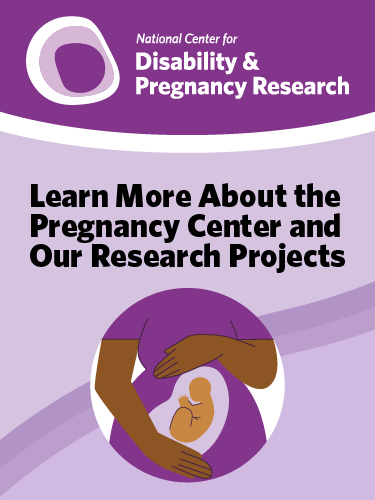The National Center for Disability and Pregnancy Research is part of the Lurie Institute for Disability Policy at Brandeis University’s Heller School for Social Policy and Management. We work closely with other institutes and centers at Heller, including the National Research Center for Parents with Disabilities.
The National Center for Disability and Pregnancy Research conducts multidisciplinary research about reproduction, pregnancy, and disability, including reproductive health, sex education, prenatal health, childbirth, interactions with obstetricians, and support networks. Our team of researchers and staff draws on the strengths of our parent institute, the Lurie Institute for Disability Policy. Housed at Brandeis University’s Heller School for Social Policy and Management, the Lurie Institute has been a longtime leader in producing research on disability, health, and community living.
The National Center for Disability and Pregnancy Research has three main goals:
- Address gaps in knowledge about pregnancy and disability utilizing existing and new data sources in order to more fully examine perinatal care, complications, and outcomes—particularly disabled people of color;
- Develop and test evidence-based interventions and supports to enhance the experience of pregnancy in people with disabilities;
- Promote optimal pregnancy-related outcomes, health, and well-being for all pregnant people with disabilities through the active communication of findings, along with targeted training, offered to those in the disability community as well as healthcare providers.
Learn more about the NCDPR in this short overview.
Research reported on this website was developed under a grant from the National Institute on Disability, Independent Living, and Rehabilitation Research (NIDILRR grant number 90DPHF0011). NIDILRR is a center within the Administration for Community Living (ACL), Department of Health and Human Services (HHS). The content is solely the responsibility of the authors and does not necessarily represent the official views of NIDILRR, ACL, or HHS.

